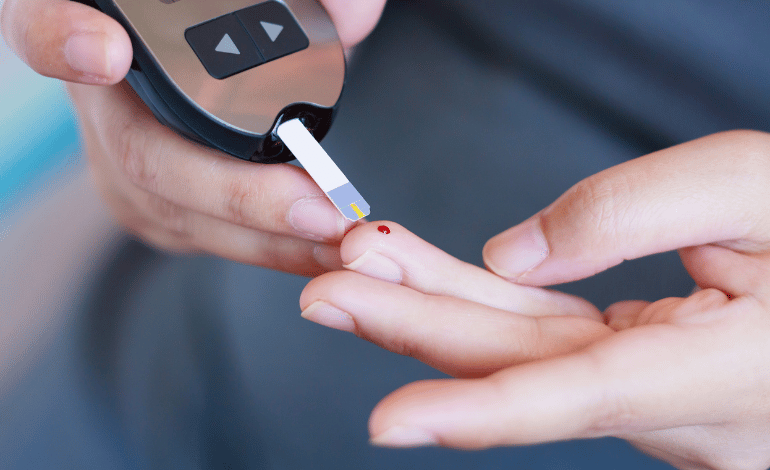21 Successful Tips to Reduce Risk of Heart Attack

21 Successful Tips to Reduce Risk of Heart Attack: Heart disease is a leading cause of death worldwide, but the good news is that it is largely preventable. By following some simple steps and making healthy lifestyle choices, you can significantly reduce your risk of a heart attack. These 21 successful tips to prevent a heart attack include quitting smoking or using tobacco products, maintaining a healthy weight, getting regular exercise, and following a healthy diet. Additionally, controlling high blood pressure, high cholesterol, and diabetes, reducing stress, and getting enough sleep are all important steps you can take to protect your heart health. By taking these tips seriously and making them part of your daily routine, you can enjoy a healthier life with a lower risk of heart disease.
1. Quit Smoking or Using Tobacco Products: Smoking is a significant risk factor for heart disease and can damage blood vessels, making them more prone to plaque buildup and blockages. Quitting smoking or using tobacco products is one of the most important steps you can take to reduce your risk of a heart attack.
2. Maintain a Healthy Weight: Being overweight or obese can put added strain on your heart and increase your risk of developing other risk factors for heart disease, such as high blood pressure and diabetes. Maintaining a healthy weight through a balanced diet and regular exercise can help reduce your risk of a heart attack.
3. Get Regular Exercise: Regular exercise can help improve heart health, lower blood pressure, and reduce cholesterol levels. Aim for at least 30 minutes of moderate activity most days of the week.
4. Follow a Healthy Diet: A healthy diet that is low in saturated and trans fats, salt, and added sugars can help reduce your risk of a heart attack. Eat a variety of fruits and vegetables every day and choose lean sources of protein, such as fish and chicken.
5. Eat a Variety of Fruits and Vegetables: Fruits and vegetables are packed with nutrients that are important for heart health, including fiber, vitamins, and minerals. Eating a variety of fruits and vegetables every day can help reduce your risk of a heart attack.
6. Limit Alcohol Intake: Drinking too much alcohol can raise blood pressure and increase your risk of heart disease. Limit your alcohol intake to no more than one drink per day for women and two drinks per day for men.
7. Control High Blood Pressure: High blood pressure is a significant risk factor for heart disease. Controlling high blood pressure through medication or lifestyle changes, such as regular exercise and a healthy diet, can help reduce your risk of a heart attack.
8. Control High Cholesterol: High cholesterol levels can contribute to the buildup of plaque in your arteries, increasing your risk of a heart attack. Controlling high cholesterol through medication or lifestyle changes, such as a healthy diet and regular exercise, can help reduce your risk.
9. Control Diabetes: Diabetes can damage blood vessels and increase your risk of heart disease. Controlling diabetes through medication or lifestyle changes, such as regular exercise and a healthy diet, can help reduce your risk of a heart attack.

10. Reduce Stress: Chronic stress can contribute to high blood pressure and other risk factors for heart disease. Finding ways to reduce stress, such as through relaxation techniques or therapy, can help improve heart health.
11. Take all Prescribed Medications as Directed: If you have high blood pressure, high cholesterol, or diabetes, taking medication as directed by your healthcare provider can help reduce your risk of a heart attack.
12. Know your Family History: Knowing your family history of heart disease can help you and your healthcare provider assess your risk and take steps to reduce it.
13. Get Regular Checkups: Regular checkups with your healthcare provider can help identify and treat any risk factors for heart disease.
14. Know the Symptoms of a Heart Attack: Knowing the symptoms of a heart attack, such as chest pain or discomfort, shortness of breath, and pain or discomfort in the arms, back, neck, or jaw, can help you seek treatment quickly and reduce the risk of serious complications.
15. Learn CPR: Learning CPR can help you respond quickly in the event of a heart attack. CPR stands for Cardio-Pulmonary Resuscitation, which is a life-saving technique used in emergency situations when someone’s heart has stopped beating or they have stopped breathing. It involves performing chest compressions and rescue breathing to help maintain blood flow and oxygenation to the body’s vital organs until advanced medical help can arrive. CPR can be performed by anyone who has been trained in the technique, and it can greatly increase the chances of survival for someone experiencing cardiac arrest or respiratory failure.
16. Avoid Exposure to Air Pollution: Air pollution can increase the risk of heart disease, so try to avoid exposure to pollution whenever possible.
17. Avoid or Limit Exposure to Secondhand Smoke: Secondhand smoke can increase the risk of heart disease, so try to avoid or limit exposure to secondhand smoke.
18. Get Enough Sleep: Lack of sleep can contribute to high blood pressure and other risk factors for heart disease. Aim for 7-8 hours of sleep each night.
19. Manage Other Health Conditions: If you have other health conditions, such as sleep apnea or an autoimmune disorder, work with your healthcare provider to manage them and reduce their impact on your heart health.
20. Stay Informed: Stay informed about the latest research and recommendations for heart health and talk to your healthcare provider about any questions or concerns you may have.
21. Make Heart-Healthy Choices Every Day: Making heart-healthy choices every day, such as choosing to take the stairs instead of the elevator or opting for a salad instead of a burger, can help reduce your risk of a heart attack over time. Small changes can add up to significant improvements in heart health.
By taking these 21 successful tips seriously and making them part of your daily routine, you can significantly reduce your risk of a heart attack and enjoy a healthier life. Remember to always consult with your healthcare provider before making any significant changes to your lifestyle or medication regimen.








